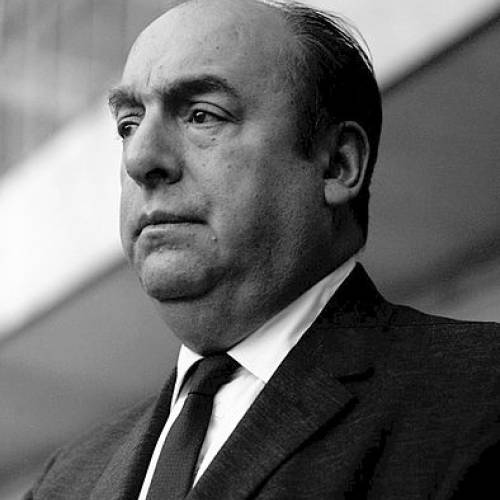 https://heaven.world/en/pablo-neruda
https://heaven.world/en/pablo-neruda
Firstname
Pablo
Lastname
Neruda
Name
Pablo Neruda
lived from:
1904-07-12
lived until:
1973-09-23
Pablo Neruda was the pen name and, later, legal name of the Chilean poet-diplomat and politician Ricardo Eliécer Neftalí Reyes Basoalto. He derived his pen name from the Czech poet Jan Neruda. Neruda won the Nobel Prize for Literature in 1971.
Neruda became known as a poet when he was 10 years old. He wrote in a variety of styles, including surrealist poems, historical epics, overtly political manifestos, a prose autobiography, and passionate love poems such as the ones in his collection Twenty Love Poems and a Song of Despair. He often wrote in green ink, which was his personal symbol for desire and hope.
The Colombian novelist Gabriel García Márquez once called Neruda "the greatest poet of the 20th century in any language." Harold Bloom included Neruda as one of the 26 writers central to the "Western Tradition" in his book The Western Canon.
On July 15, 1945, at Pacaembu Stadium in São Paulo, Brazil, Neruda read to 100,000 people in honor of the Communist revolutionary leader Luís Carlos Prestes.
During his lifetime, Neruda occupied many diplomatic positions and served a term as a Senator for the Chilean Communist Party. When President González Videla outlawed communism in Chile in 1948, a warrant was issued for Neruda's arrest. Friends hid him for months in the basement of a house in the port city of Valparaíso. Later, Neruda escaped through a mountain pass near Maihue Lake into Argentina.
Years later, Neruda was a close advisor to Chile's socialist President Salvador Allende. When Neruda returned to Chile after his Nobel Prize acceptance speech, Allende invited him to read at the Estadio Nacional before 70,000 people.
Neruda was hospitalised with cancer at the time of the coup d'état led by Augusto Pinochet but returned home after 5 days when he suspected a doctor of injecting him in the stomach with an unknown substance for the purpose of murdering him at the order of Pinochet. Neruda died in his house in Isla Negra on 23 September 1973 six and a half hours after that injection. Although it has always been reported that he died of prostate cancer or heart failure, on November 5, 2015 the Interior Ministry of the Chilean government issued a statement acknowledging a Ministry document from March of that year indicating the government's official position that “it was clearly possible and highly likely” that he was killed as a result of “the intervention of third parties”. Pinochet, backed by elements of the armed forces, denied permission for Neruda's funeral to be made a public event. However, thousands of grieving Chileans disobeyed the curfew and crowded the streets.
Santiago (Santiago Metropolitan Region), Chile
https://en.wikipedia.org/wiki/Pablo_Neruda